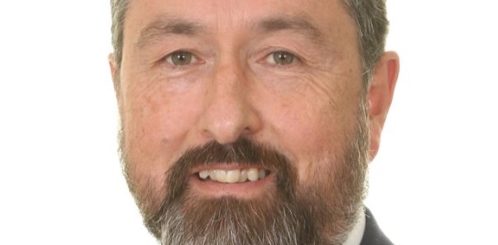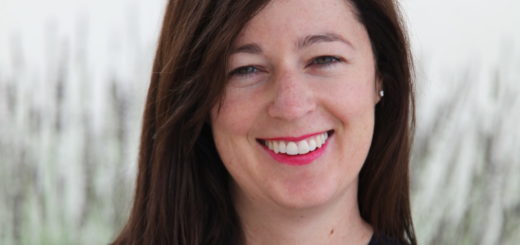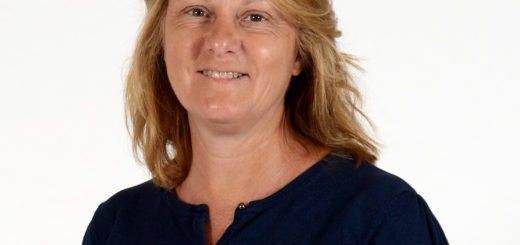Phileas Fox Nursery – An exclusive interview with Evgenia Lazareva, founder, Phileas Fox Nursery School
From the first day I visited Phileas Fox, even before they opened their doors to welcome the children, I have been consistently impressed with the care, commitment and quality of the nursery. From materials and teachers to the carefully laid out curriculum, the nursery is on it’s way to becoming a valuable asset to parents and children. The founder, Evgenia, is lovely, warm and welcoming and has successfully founded a nursery based on a vision of teaching children from a young age the value of transcending boundaries through communication. The multi-lingual nursery takes advantage of young absorbent minds and uses the invaluable early years to instil a love of language and learning in children who are registered with them. From the name which is clearly, a clever twist on Jules Verne’s hero, to the beautiful decor with plenty of natural light and a decent sized out door play area, the nursery is very well thought through.
Question:
What was the thought process behind the establishment of Phileas Fox Nursery School as a multilingual Montessori school?
Answer:
Initial idea for the languages came from my business partner Nina, who is half Chinese and half German. Unfortunately, she does not speak Chinese as her parents did not work on it enough, and now she greatly regrets is. I speak a few languages myself and am bringing up my little boy bilingual, so these were the two big inspirations. Knowing how easy it os for children to learn languages, we thought it would be the best possible start for them to begin learning a new language at this early age. London is very international with so many languages spoken here, so no doubt the parents would welcome such opportunity for their children. The Montessori elements that we use at the school just compliment the holistic experience that children receive at our nursery.
Question:
Do you follow the pure Montessori method or do you use a more holistic approach?
Answer:
We do not follow the pure Montessori method, we just use some elements of it that are to an extent already embedded into EYFS. We do have some teachers that are Montessori trained, and we do try to combine it with our more holistic approach to give children a wide range of experience here.
Question:
How long is the settling in process and what does it entail?
Answer:
The settling in process is very flexible and we follow the family needs. Parents often come and visit the nursery with the children, and prior to the start they can come and spend an hour or so playing here together to get used to it. Some children go off without being upset at all and happily get on with it, while others take a little bit longer and there are a few tears when parents or carers leave. However, normally after a few minutes they get involved into playing and are happy. If it is a little bit harder for some children, they can bring a comforter or a toy from home. All children have a key person who is always there to reassure them, but all our teachers are here to do it. If the child is not settling well in the first day or two, we call the parents and ask them to collect them earlier. Parents are always welcomed to ring us and to check on how their little one is doing. So far, all of our children were settled and happy within one week, and even parents are amazed at that!
Question:
What is the criteria you have in place to recruit language teachers?
Answer:
We have very strict recruitment process and are extremely selective. We make sure that our language teachers are all native speakers and speak properly, with good neutral accents and are grammatically correct. The also need to have experience working with young children and have the knowledge of traditional children books, stories, songs and games from the culture of the language. Our Russian teacher is in addition a professor of bilingualism and her thesis was on how children grow up bilingually, so we are extremely lucky to have her and her guidance! All our staff go through all checks and training such as DBS, referencing, safeguarding, first aid and so on as a standard procedure.
Question:
What is the staff to children ratio?
Answer:
For our young children aged 1-2 the ratio is 1 teacher to 3 children, and once they are 2 and older it is 1 staff to 4 children.
Question:
Are the children taught all three languages in rotation or do you focus on one language chosen by the parents at one time? If so, what advantages would you say Phileas Fox has over a traditional bi-lingual school?
Answer:
Normally parents chose one language, or sometimes they can chose two if the child is in school for the whole week and there is time for it to be meaningful. In a lot of bilingual school, the other language (non English) normally becomes the dominant language. We have taken a slightly different approach after speaking with our parents and trying to understand what they really want. We are located in central london, where a lot of international families live, and often English is not the first language for the children. Yet a lot of our parents are planning to send their children to independent pre-preps at the age of four, for which the children need to be well prepared and have a certain level of English. With that in mind, we deliver our curriculum in English and have an intensive daily language immersion (for a roughly third of their time). We have a comprehensive discussion with the parents prior to the children starting with us to understand the language abilities of the children and to see what the goals are. Being a small school we can give a lot of individual attention and to take care of the children’s language needs.
Question:
What appeal would you say the nursery holds for children whose parents don’t speak any of the three languages taught at the school? What mechanisms do you have in place to provide for such a child?
Answer:
Learning a new language is beneficial not only for acquiring the language skills, but also for developing and stimulating the young minds. It is incredible how quickly they learn, and parents are often amazed that the children come back saying words in another language. All teaching is done through play and is adapted based on the age and ability of the child. As mentioned above, we do assess the language skills and then introduce the language accordingly.
Question:
How does the school view preparing the children for the 4+ assessment process?
Answer:
We take this process very seriously, as it is an important transition for the children and parents, and often a rather complicated one given the schools situation in London! We have established links with the top independent pre preps and local state schools and are aware of what they expect of children even at such young age. Our teachers are experienced and will ensure that children are ready for the transition at the age of 4. We keep in close communication with parents to know where they are applying and to tackle any issues that can potentially arise beforehand.
Question:
While the benefits of raising multi-lingual children are widely recognised, what are your views on the commonly held beliefs that
a) multi-lingual children tend to speak later and lag behind their peers by around 6 months or so and
b) that they tend to mix in different languages when they start speaking and finally
c) what, if any, is the effect of the above on sitting the 4+ tests and gaining admission to the top private schools in the area?
Answer:
a) Some bilingual children tend to speak later, not as much as 6 months though. However when they do start speaking, they have no problems developing vocabulary and grammar in both languages equally well.
b) They do mix the languages because they might have different social settings where they use the language, however it is not because they are confused, but is a sign of linguistic creativity and they actually think and decide which language they should be using at what circumstance.
c) Children’s cognitive abilities are boosted by being bilingual which can only be beneficial for the assessments at 4+
Question:
Being a new nursery school, what are your plans for the future? What new developments do you have in store?
Answer:
We hope to, and we already are becoming a part of the local community, and are extremely happy to provide high quality early years multilingual education. We always look for ways to make children’s experiences with us as rewarding, fun and beneficial as possible. In addition to our core programme we have fantastic visiting teachers offering a variety of activities such as tai chi, yoga and classical music. We have an after school club which is open to children who are not at our school where they can learn languages in a fun and stimulating environment. We will never compromise on quality of our teaching or resources and look forward to deliver fantastic educational experience for the families that come to us for years to come.
My thoughts
It is refreshing to see a nursery that has taken the plunge to try to achieve something that is quite difficult to do. To run a bi-lingual nursery is hard enough but to have the option of multiple language on offer is a real bonus. The founders clearly know what they are doing and have a well thought out curriculum and plan. The nursery is really quite lovely and the teachers I spoke to were all native speakers in their languages. The nursery is divided into little sections depending on language and they use a great deal of Montessori materials and methods along with puppetry, songs and many interesting and fun ways of teaching new languages to children. It is a warm and welcoming atmosphere and the founders are working very hard to make sure that children are prepared for the transition to school life in the best way possible. All in all, one to keep an eye on as it seems to be fast becoming a real success in the community! We wish them well! A lovely idea, excellently executed.











